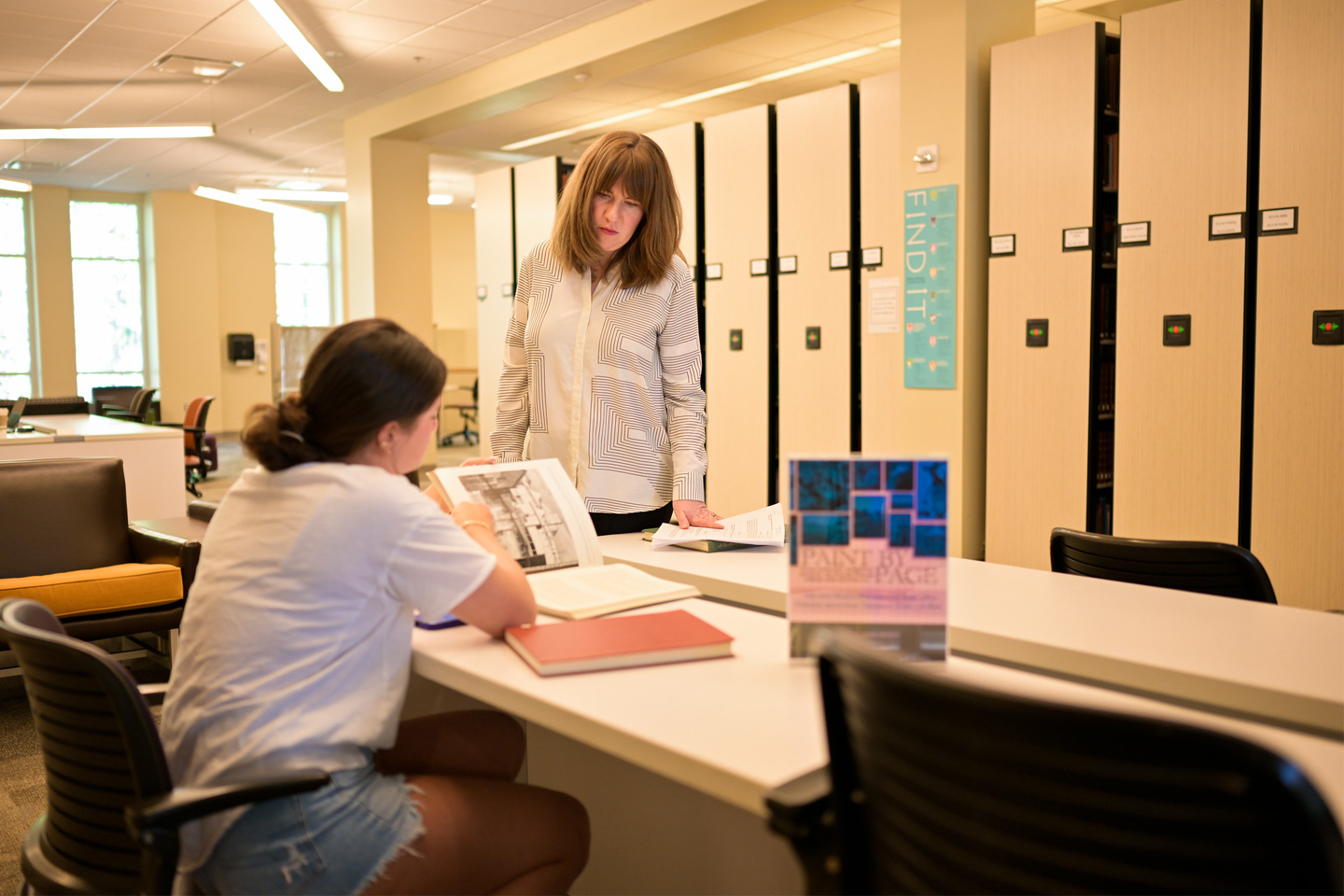New programming, interdisciplinary scholarship supported by Emory Initiative for Arts and Humanistic Inquiry

The Emory Initiative for Arts and Humanistic Inquiry has unveiled its latest slate of funded programs, showcasing the university's continued commitment to fostering creative expression across disciplines. The initiative also welcomed Kevin Karnes, divisional dean of arts in the Emory College of Arts and Sciences, as the new chair of the faculty advisory committee.
The Office of the Provost initiative, launched in fall 2023, seeks to advance understanding of the human experience and respond to today’s challenges by funding creative programming, recruiting faculty in the arts and humanities and supporting expanded programming by the Fox Center for Humanistic Inquiry. Proposals are accepted on a rolling basis from faculty across the university.
"The vision of the Emory Initiative for Arts and Humanistic Inquiry is to support events and projects that departments and schools may not otherwise have the ability to do,” says Karnes, who is also the Samuel Candler Dobbs Professor of Music. "The idea is to emphasize interdisciplinary programming in the humanities and the arts and to make them more visible across Emory and the Atlanta community.”
Since October 2023, the initiative has accepted funding requests from all Emory faculty to support creative programming such as workshops, performances, discussions and readings that directly nurture scholarship and build community around the arts and humanities. Underwritten by the Office of the Provost, the initiative has awarded grants to more than a dozen programs, including several recent ones.
Newly funded programs span a remarkable breadth of humanities and arts disciplines, including a three-year Visual Arts Gallery exhibition series, a photography project documenting diaspora experiences, a symposium exploring Virgin Islands coloniality, a residency with Academy Award-nominated filmmakers, a Jewish Studies working group, and a symposium discussing the research, pedagogy and curricula of close reading—the core methodology of literary studies.
To supplement grants from the Arts and Humanistic Inquiry initiative, many of the programs have received additional support through sources including the Emory College of Arts and Sciences’ Hightower Speakers Fund and the Fox Center for Humanistic Inquiry.
"Working collaboratively with the Arts & Humanistic Inquiry initiative, the Fox Center and individual departments and units are able to be more ambitious in the scope of our programming — hosting conferences, workshops, symposia, visiting scholars and artists, for example — and expand the impact of the arts and humanities at Emory and beyond,” says Carla Freeman, the Goodrich C. White Professor of Women's Gender and Sexuality Studies, director of the Fox Center for Humanistic Inquiry and member of the initiative’s faculty advisory committee.
Beyond programming, the initiative also provides support for faculty, helping schools bolster strengths and advance interdisciplinary inquiry. Mary Johnson, recruited in 2024 as an assistant professor of art at Oxford College, is one faculty member using the opportunity to blend disciplines while exploring complex themes.
A recent series of her work combined imagery of deep sky objects captured by telescope with drawings of rocks and soils. “In essence, it is the ground we walk on and the sky we look at above, and putting that together into one picture plane,” Johnson notes.
"Art and science both explore questions and apply creativity, but art embraces paradoxes more comfortably,” she says. “This series of works—depicting how humans share a chemical makeup with things like stars, stones and other sentient beings—aims to highlight our simultaneous relevance and irrelevance in the vast space-time continuum. Like leaves on a tree or grains of sand on a beach, we are small yet necessary. Understanding this balance is key to our peaceful existence in the universe."
Johnson hopes to continue her interdisciplinary work by partnering with Emory’s observatory and other units. For example, she has led her students in “slow looking” exercises at the Oxford Farm, where students examine and create intricate drawings of a single square foot of space. She is also planning a collaboration with the Carlos Museum to have students observe drawings from the museum’s collection and learn about the iterative process of creating art, with the possibility of the museum bringing objects to Oxford Library as part of this examination.
Emory's championing of collaboration between departments and schools, as well as its emphasis on exploring complex, cutting-edge themes, is a gamechanger, according to Johnson.
“Emory is honestly ahead of the curve by supporting the humanities and the arts,” she says. “It is so important to consider what it means to be human. We’re at a moment in time when knowing what our capabilities and limits are as human beings is what will support meaningful progress. I am very grateful for the opportunity to challenge myself to think about these ideas and to be supported on the path to respond to these critical questions.”
Proposals for Arts and Humanistic Inquiry creative program grants are accepted on a rolling basis, and all full-time Emory faculty may request support for programs focused on the arts and humanities. Information about proposal submission and evaluation and a link to the request for funding is available in the request for proposals on the Arts and Humanistic Inquiry website. Questions can be directed to Kevin Karnes, chair of the Arts & Humanistic Inquiry faculty advisory committee and divisional dean of arts in Emory College, by emailing kkarnes@emory.edu.Submit a Proposal